Related Research Articles

The director of central intelligence (DCI) was the head of the American Central Intelligence Agency from 1946 to 2005, acting as the principal intelligence advisor to the president of the United States and the United States National Security Council, as well as the coordinator of intelligence activities among and between the various US intelligence agencies.
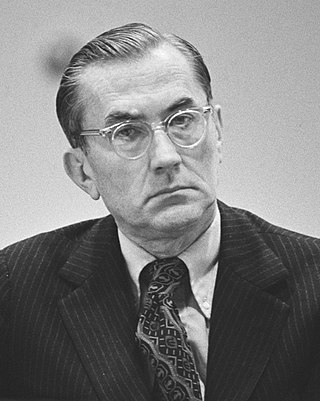
William Egan Colby was an American intelligence officer who served as Director of Central Intelligence (DCI) from September 1973 to January 1976.
James L. Pavitt was Deputy Director for Operations (DDO) for the CIA from 23 June 1999 until July 12, 2004, when he resigned a day after George Tenet. The CIA said the resignations was for personal reasons.
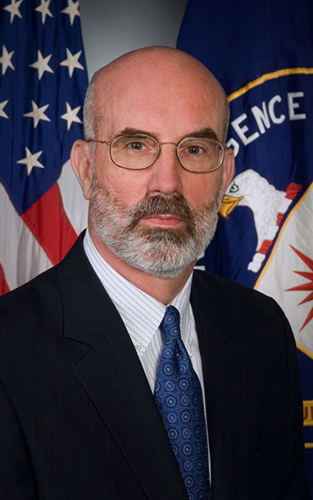
Stephen R. Kappes was the Deputy Director of the Central Intelligence Agency (DDCIA), until his resignation on April 14, 2010. He had served in the CIA since 1981, with a two-year hiatus. A career clandestine operations professional, Kappes supervised the extraordinary rendition program, a non-judicial system of rendering persons suspected of terrorism to secret locations where most of them were interrogated. Kappes also helped persuade Libyan leader Muammar al-Gaddafi to abandon his nuclear weapons program in 2003. In 2009, Kappes was convicted in absentia by an Italian court for his headquarters-based role in the rendition and torture of an Egyptian citizen who was kidnapped from Italian soil by the CIA.
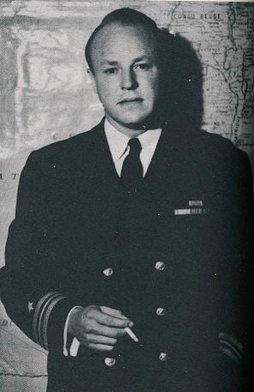
Frank Gardiner Wisner was one of the founding officers of the Central Intelligence Agency (CIA) and played a major role in CIA operations throughout the 1950s.
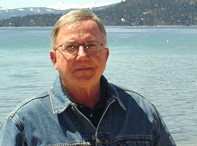
Gary Charles Schroen was an American intelligence officer who spent 52 years with the Central Intelligence Agency, most notably as a field officer in charge of the initial CIA incursion into Afghanistan in September 2001 to topple the Taliban and destroy Al-Qaeda. He retired as the most decorated CIA officer in history.
Clair Elroy George was a veteran of the Central Intelligence Agency's (CIA) clandestine service who oversaw all global espionage activities for the agency in the mid-1980s. According to The New York Times, George was "a consummate spymaster who moved the chess pieces in the CIA's clandestine games of intrigue".

The Central Intelligence Agency, known informally as theAgency and historically as thecompany, is a civilian foreign intelligence service of the federal government of the United States, officially tasked with gathering, processing, and analyzing national security information from around the world, primarily through the use of human intelligence (HUMINT) and conducting covert action. As a principal member of the United States Intelligence Community (IC), the CIA reports to the Director of National Intelligence and is primarily focused on providing intelligence for the President and Cabinet of the United States. Following the dissolution of the Office of Strategic Services (OSS) at the end of World War II, President Harry S. Truman created the Central Intelligence Group under the direction of a Director of Central Intelligence by presidential directive on January 22, 1946, and this group was transformed into the Central Intelligence Agency by implementation of the National Security Act of 1947.

Jack Gregory Downing was an American field officer for the Central Intelligence Agency (CIA). He served as its Deputy Director for Operations (DDO) from 1997 until July 1999. He was the only person to act as the agency's station head in both Moscow and Beijing.

The Bin Laden Issue Station, also known as Alec Station, was a standalone unit of the Central Intelligence Agency in operation from 1996 to 2005 dedicated to tracking Osama bin Laden and his associates, both before and after the 9/11 attacks. It was headed initially by CIA analyst Michael Scheuer and later by Richard Blee and others.

The U.S. Central Intelligence Agency's Mission Center forCounterterrorism is a division of the CIA's Directorate of Operations, established in 1986. It was renamed during an agency restructuring in 2015, and is distinct from the National Counterterrorism Center (NCTC), which is a separate entity. The most recent publicly known Assistant Director for Counterterrorism Mission Center was Chris Wood who led the organization from 2015 to 2017.
Vincent Cannistraro was Director of Intelligence Programs for the United States National Security Council (NSC) from 1984 to 1987; Special assistant for Intelligence in the Office of the Secretary of Defense until 1988; and Chief of Operations and Analysis at the Central Intelligence Agency's (CIA) Counterterrorist Center until 1991.
The Intelligence Medal of Merit is awarded by the Central Intelligence Agency for performance of especially meritorious service or for achievement conspicuously above normal duties.
The Camp Chapman attack was a suicide attack by Humam Khalil Abu-Mulal al-Balawi against the Central Intelligence Agency facility inside Forward Operating Base Chapman on December 30, 2009. One of the main tasks of the CIA personnel stationed at the base was to provide intelligence supporting drone attacks in Pakistan. Seven American CIA officers and contractors, an officer of Jordan's intelligence service, and an Afghan working for the CIA were killed when al-Balawi detonated a bomb sewn into a vest he was wearing. Six other American CIA officers were wounded. The bombing was the most lethal attack against the CIA in more than 25 years.
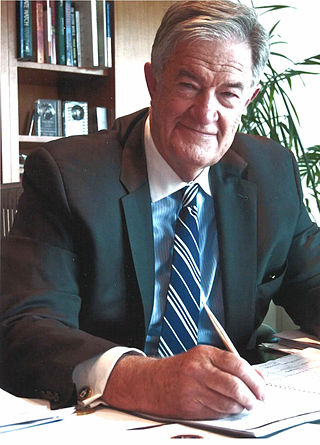
Jack Devine is a veteran of the Central Intelligence Agency (CIA) and a founding partner and President of The Arkin Group LLC.
Jonna Mendez is an American former technical operations officer, photo operations officer, and chief of disguise in the Central Intelligence Agency's (CIA) Office of Technical Service.
Gregory W. Vogle is an American intelligence officer who served as the Director of the National Clandestine Service from January 29, 2015 until August 2017. He is a recipient of the Distinguished Intelligence Cross, the nation's highest intelligence award for valor, often described as a Medal of Honor equivalent, for his actions to defend Afghan President Hamid Karzai and his troops against an attack on their position by the Taliban in Tarinkot, Afghanistan.

Henry "Hank" A. Crumpton is a retired Central Intelligence Agency operations officer, in his 24 year career he was appointed deputy director of the Counterterrorism Center and head the CIA's National Resources Division, which focuses on operations in the United States. He played an instrumental role in the early days of the invasion of Afghanistan, leading CTC Special Operations paramilitary forces as some of the first people with boots on the ground in pursuit of the Taliban and al-Qaeda just weeks after 9/11. Gary Schroen's seven man Northern Alliance Liaison Team (NALT) forged alliances and established camp in the mountains, while Crumpton crafted a plan for a larger incursion alongside others like Greg Vogle and Chris Wood. He went on to be appointed by President George W. Bush as Coordinator for Counterterrorism at the Department of State with the rank of Ambassador-at-large on August 2, 2005. He is an author and co-founder, co-Chairman, and co-CEO of the business intelligence firm Martin+Crumpton Group LLC.
John Christopher Wood is a retired operations officer of the Central Intelligence Agency. After the terrorist attacks of September 11, 2001, he was part of the initial team of seven CIA officers that entered Afghanistan in pursuit of al-Qa'ida and the Taliban just 15 days after the attacks. Later he held prominent positions, including Kabul station chief and director of the Counterterrorism Mission Center (CTMC).
Janine Marilyn Brookner was an American lawyer and Central Intelligence Agency (CIA) officer. She became the first female CIA station chief in Latin America when she took over the Jamaica station in 1989. She was falsely accused of professional misconduct in 1992 by her superiors at the CIA and after being threatened with a demotion and criminal sanctions, she sued the agency. In 1994, she became the first person to successfully sue the agency for sexual discrimination. She became a lawyer in 1998, specializing in sex discrimination cases against the federal government.
References
- ↑ Denise Grady (15 June 2012). "Richard F. Stolz Dies at 86; Headed C.I.A. Spy Operations". New York Times . Retrieved 22 July 2020.
- 1 2 3 Wines, Michael (November 20, 1990). "Washington at Work; After 30 Years in Shadows, a Spymaster Emerges". The New York Times. ISSN 0362-4331 . Retrieved August 24, 2021.
- ↑ Loeb, Vernon (February 4, 2000). "Ex-Spy's Mission at CIA: Burying the Bureaucracy". The Washington Post. Retrieved August 24, 2021.
- 1 2 Steve Coll (3 March 2005). Ghost Wars: The Secret History of the CIA, Afghanistan and Bin Laden . Penguin Books. p. 243. ISBN 9780141935799.